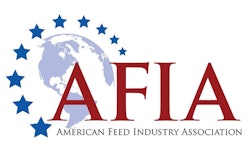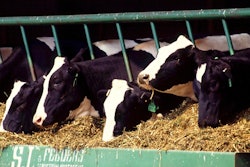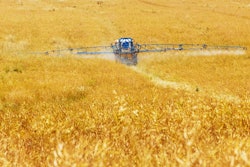
The burgeoning biofuels market has created a whole new concern for grain producers: shipping DDGS overseas.
International Feed, a Minnesota-based supplier and exporter of animal feed ingredients, forged a relationship with an unlikely source to address the issue of storing and shipping their DDGS. Ashley Furniture, located blocks away from a grains transloading facility, offered a unique solution to their storage needs.
Arcadia Cooperative Association is a transloading facility located in Arcadia, WI that is capable of transloading anywhere from 250 to 500 tons a day. In 2004 International Feed presented Arcadia Co-op with an offer they couldn’t refuse.
Bernie Kaiser, president of International Feed, saw that the Ashley Furniture in Arcadia had plenty of containers and rail access to facilitate shipping of the co-product to the Orient. But he needed a connection. That’s where Arcadia Co-op fits into the puzzle.
“We are located in the Twin Cities and we needed a partner to run the operation in Arcadia,” says Kaiser. “The co-op understood our business.”
“International Feed approached us with this job. They knew there were empty containers at Ashley and that we were just blocks away with an active feed center,” says Paul Lundequam, transloading manager at Arcadia Co-op.
The deal was so successful for International Feed that they were able to provide Arcadia Co-op with enough work to transload 20 containers a day, in an 8-hour shift.
Eye on the East
China is being dubbed the next world super power for good reason. As the U.S. trade deficit grows, China’s economic woes are quickly becoming a past memory.
“The steamship business is focused on Chinese imports and the demand for exports to China has risen,” says Kaiser.
International Feed and Arcadia Co-op have their sights set on China, but for now does a good portion of their business with Vietnam, Thailand and other South Seas nations.
A 2006 U.S. Grains Council (USGC) report counted Indonesia, Taiwan, Malaysia, Vietnam and Thailand among the top 15 DDGS importers of 2005.
Due to Vietnam’s increased standard of living, the demand for better livestock feed ingredients has skyrocketed. In 2006, Vietnam imported 30,000 tons of DDGS for their pork trials, according to USGC statistics.
In 2005 exports of DDGS increased by 26% from 6.92 million tons in 2004 to 9.36 million tons.
Ashley Furniture has steadily kept up with the rising trend, the main reason their union is so advantageous for International Feed.
Ashley’s exports to Asia have risen about 55% year-to-date, according to Jim Coonan, director of logistics for Ashley Furniture.
Since the Asian DDGS market has exploded, Ashley has been able to ship all their containers back to Asia filled with exports.
“Some of them used to move empty and some moved with exports, but certainly not at the high volume that the agricultural sector is shipping,” says Coonan.
The shipping route
The 40-foot-long, by 8-foot-wide, by 9-foot-tall containers are filled with DDGS when they arrive at Arcadia Co-op.
The containers have about a 48,000-pound weight limit and since DDGS are relatively light, the containers can be filled nearly to the top. When transloading heavier commodities, like whole corn and bean meal, the containers leave Arcadia only about a third of the way filled.
A semi brings the filled containers back to Ashley, takes them off the chassis and puts them on a railcar. Their next destination is a Northwest coast port, typically Vancouver, British Columbia, where they go onto a barge headed for Asia. Once the contents are loaded into the steel container, they never leave until arriving at their final destination where the DDGS are taken directly to the feed mill.
Expect export expansion
President Bush’s “20 in 10” initiative proposes that the nation will reduce U.S. gasoline usage by 20% in the next 10 years, requiring increased ethanol production.
This means China’s upward trend in DDGS exports isn’t going anywhere fast, and in fact, may soar even higher.
Coonin doesn’t foresee the relationship with International Feed and Arcadia Co-op ending any time soon. He anticipates that International Feed will need a service such as theirs well into the future.


















